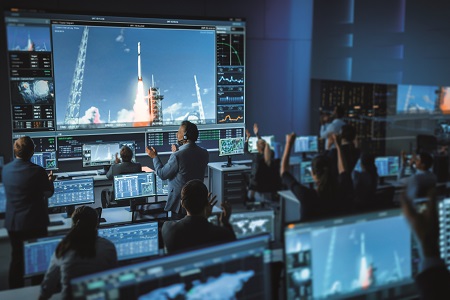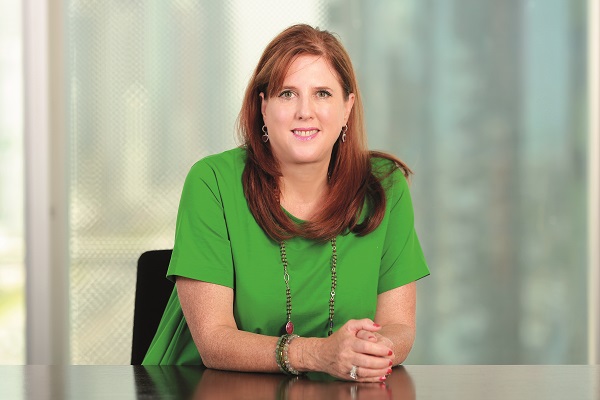Existing space treaties do not entirely cover recent developments such as commercial and private operations. But with cosmic highways becoming busier than ever, operators and insurers are looking at alternative and innovative solutions, reports Keith J Fernandez.
 Space exploration has been indispensable to the way we live today. From phone calls to watching a movie on a streaming channel to remote financial transactions and national security, space technology plays an indispensable role.
Space exploration has been indispensable to the way we live today. From phone calls to watching a movie on a streaming channel to remote financial transactions and national security, space technology plays an indispensable role.
Until recently, the field has been the playground of a small clutch of wealthy nation-states. As exploration costs have fallen and technology has become more widely accessible, more countries are aiming for the stars, putting satellites into orbit and launching new space missions whether to the moon, Mars or further afield. At the same time, the emergence of commercial and private actors often collectively referred to as New Space is transforming the industry as fields such as tourism and even asteroid mining signal routes to future economic growth.
The impact of our expanded use of space and the increasing range of activities are naturally shaping the landscape of satellite trade and insurance.
Just one example is the accumulation of space debris. With more objects in orbit than ever before, there are now 170m pieces of junk in space, according to the ESA. There is therefore a greater risk of collisions between space objects, whether these are satellites or debris. With that come potentially more disputes among space operators and a greater number of insurance claims.
As space becomes busier, then, current legal systems will need to evolve. On the one hand, they need to continue supporting this emerging economy, support innovation and promote equitable access for all. But they must also anticipate evolving challenges, mitigate new kinds of risks, establish a process for commercial dispute resolution and ensure the stewardship of space for future generations.
That requires new governance.
The current regime isnt optimum for todays commercial space environment, says Christopher TW Kunstadter, Global Head of Space at international insurance provider AXA XL. The risk professional has been advising and managing space underwriting for four decades.
There are close to 100 countries that have put satellites in space, so you have many more nations in space active today than at the time when existing space treaties were enacted in the sixties and seventies, when three or four countries were working on space programmes. These treaties were agreed well before things like commercial space activity or commercial human spaceflight started. They dont really work as well for the current wave of commercial activity, such as communications, Earth Observation, human spaceflight, and so on. Those werent anticipated in the 60s and 70s, when those treaties were promulgated, he explains.

Cosmic rulebook
Space activity remains largely governed by five international treaties agreed between 1967 and 1984, and five declarations by the United Nations General Assembly from 1963 to 1996.
Each treaty underscores the idea that outer space, and its activities and benefits should contribute to global well-being and promote international cooperation. Among other provisions, the treaties together prevent a single country from claiming outer space, regulate the use of arms, guarantee the freedom of exploration, preserve the environment and space resources, establish liability for damage to interplanetary objects, and ensure the safety and rescue of spacecraft and astronauts, and determine how disputes can be settled.
The treaties are the foundation of international space law. They include: The Outer Space Treaty (1967), the Rescue Agreement (1968), the Liability Convention (1972), the Registration Convention (1976) and the Moon Agreement (1984). Together they cover principles around free exploration, celestial land grabs, placing certain types of weapons in space, the return of astronauts and objects launched into space, and liability for damage caused by space objects.
In addition, the Space Debris Mitigation Guidelines, enacted in 2007, outline best practices for reducing space debris and ensuring sustainable space activities. Separately, the UNs Space Law for New Space Actors project supports member states with capacity building to draft national space legislation and policies in line with international laws and sustainability frameworks.
Its been 65 years since the international community first started grappling with regulation of the use of outer space and almost 60 years since the Outer Space Treaty. These early efforts were very much premised on international cooperation and the idea of outer space as a global commons to be considered for the benefit of humankind collectively, points out Scott Atkins, Global Chair and Global Co-Head of Restructuring at the international law firm Norton Rose Fulbright. He is an industry leader in restructuring, insolvency and risk, and an expert on emerging issues such as the commercialisation and governance of outer space.
But the gaps in these treaties are becoming clear with recent developments. Updating them is essential to accommodate rapid technological evolution, the surge in commercial space ventures and the expansion of space activities among an increasing number of nations.

Galactic challenges
New technologies leading to the growth of satellite mega-constellations, commercial space travel, and asteroid mining, for example, have introduced capabilities and possibilities that were not envisaged when existing treaties were drafted.
Just the rising number of satellites begs a new approach. While independent agencies such as the US Federal Communications Commission regulate American satellite launches and communications, there is no central, global organisation to ensure sustainable and responsible satellite use. This has become particularly important as private players such as SpaceX, Amazon, Boeing and One Web compete to launch new satellite services.
Likewise, existing treaties dont cover all the use cases arising from the growing involvement of private companies in an area once restricted to national entities. It requires a regulatory framework that addresses deeper challenges such as liability, intellectual property rights, liability and resource exploitation.
Other considerations include ensuring equitable access to space by enabling a role for developing countries; issues around space mining and the ownership and use of these resources; war and the potential weaponisation of space; and sustainability concerns around space debris and the space environment.
National and international legal frameworks applying to the use of outer space have not kept up with the sheer pace of commercialisation and technological change in outer space activity, Atkins says.
Legal frameworks must be enhanced in order to fully realise the undoubted scientific, economic and commercial potential outer space presents, he adds.
There remains room to grow when it comes to creating a uniform, predictable and consistent property rights framework. Similarly, a more sustainable and accountable approach is needed to tackle the growing issue of space junk, including a detailed, binding debris mitigation framework. This issue is becoming more and more prominent with the acceleration in global launch activity.
By the end of this decade just seven years away the global space economy could be worth approximately $1.1tn, according to forecasts by Bank of America Global Research. The financial institution estimated the 2021 aggregate at $469bn, a 60% growth from estimates just a decade earlier.
Collaborative approaches to regulation are therefore more important than ever. Although the UN has made several attempts to update these treaties, several factors are hindering its efforts. On their own, differing national interests and the complex nature of modern space activities make it difficult for the many nations involved to come to a consensus. Geopolitical tensions, such as tensions between the US and China, and the war in Ukraine only intensify divisions.
In November 2021, Russia intentionally destroyed one of its own outdated satellites by launching a missile from Earths surface. The resulting debris cloud poses a risk to various space assets, including to astronauts aboard the International Space Station. The event occurred just two weeks after the UN General Assemblys First Committee formally acknowledged the crucial role of space and its assets in improving the human experience. The committee focuses on disarmament, global challenges and threats to peace.
It is very unlikely that any of the existing international space treaties will be extended and even less likely that new ones will be agreed, says Darcy Beamer-Downie, Senior Counsel at global law firm Clyde & Co. An advisor on arbitration and other commercial matters, including in aviation and the energy sector, she is a guest lecturer at University of Leiden Institute of Air and Space law has presented numerous papers on space law and public access to space.
The Moon Agreement 1979 was the last of the suite of UN Space treaties which specifically attempted to prevent commercial exploitation of outer space resources. The treaty had a very low uptake mainly because states did not want further restrictions on their access to space even then, she says.

Parallel framework
Countries have now begun to take both individual and bilateral approaches to address the issue. Some nations are independently reviewing and amending their space laws to reflect evolving technologies and commercial interests.
The rapid realisation of space-enabled services from telecommunications and GPS to the authorisation of payment transactions and monitoring of the effects of climate change allied with an ever-improving understanding of the economic and commercial potential of outer space has seen that original, multilateral approach somewhat superseded by individualist state and private entity actors, Atkins says.
The United States and Luxembourg have individual laws for space mining. Under these laws, citizens of these countries can own, use, sell, or transport any resources they extract from interplanetary activities challenging notions of space being the province of humankind.
Meanwhile, the UAE Space Law aims to attract international investment and increase participation from the private sector by laying down regulations for activities such as space tourism, mining and logistical support services.
In 2021, the nation went one-step further with the launch of Courts of Space, positioning the UAE as a leading adjudicator for commercial space-related disputes.
An integrated space industry, supported by human resources, infrastructure, and scientific research, is under way. The Courts of Space is a global initiative that will operate in parallel, helping to build a new judicial support network to serve the stringent commercial demands of international space exploration in the 21st century. As space commerce becomes ever more global and countries ever more connected, diverse and nimble economies will need to enable growth. Complex commercial agreements will also require an equally innovative judicial system to keep pace, offering assurance and certainty to support and protect businesses, Zaki Azmi, Chief Justice, DIFC Courts, said when the new forum was announced.
Bilateral and multilateral approaches are also being taken. In March, the European Union presented a Joint Communication on a European Space Strategy for Security and Defence for the first time. In a statement, the bloc said the strategy represented action to protect its space assets, defend its interests, deter hostile activities in space and strengthen its strategic posture and autonomy.
Alongside the more recent draft council recommendations on Fair and Sustainable Use of Space, enacted in May, and last years EU Approach for Space Traffic Management, enacted in 2022, the strategy signals the blocs intent to safeguard space, while promoting responsible behaviour in outer space. A new joint European space law is also being developed, even as EU member states begin to work on individual legal approaches to space.
The March announcement specifically highlighted how the current geopolitical context of increasing power competition and intensification of threats require action to deter hostile activities in space and strengthen the blocs autonomy.
Elsewhere, the Artemis Accords are a multilateral arrangement between the US and another 28 countries and territories that create a framework for cooperation in the civil exploration and peaceful use of the Moon, Mars, and other astronomical objects.
But bilateral agreements are no substitute for comprehensive consensus-based treaties.
Bilateral agreements are not binding instruments of international law, which set out the rules of a particular group of commercial space actors, the most notable being the Artemis Accords. The Accords are controversial because they are considered, by many, to be a blatant political attempt by the US (and the invited state participants) to codify various principles of space law. The Accords do reference the existing space law treaties but crucially the Accords also require the invitees to in effect accept expropriation in space, which is direct conflict of article II of the Outer Space Treaty, Beamer-Downie says.
The problem with the bilateral approach to codifying space law is that it is not as inclusive as an international treaty and will inevitably restrict and influence future frameworks for commercial space activities, she adds.
 Innovative approaches
Innovative approaches
For now, alternative dispute resolution (ADR), which seeks to solve conflicts and disagreements outside of traditional courtrooms, could provide one way forward. ADR methods include mediation, arbitration and negotiation.
With ADR, the complex technical and diplomatic issues associated with space-related conflicts whether in the insurance sector or beyond can be addressed less formally and more flexibly. The mechanism can also help facilitate more effective restructuring outcomes for financially distressed commercial space actors.
As Atkins says, The existing international architecture to facilitate outer-space dispute resolution could be re-visited with an eye to successfully deploying ADR processes in other contexts. Such processes can also play an important role in facilitating more efficient and effective restructuring outcomes for financially distressed but viable enterprises.
The mechanism is part of the liability convention, although it does not cover private actors. In this sense, Atkins and other lawyers believe private arbitration and mediation offer a viable option to resolve complex cross-border outer space disputes in a timely, efficient and cost-effective manner although the framework remains underdeveloped.
Other players are exploring different ways to mitigate space risk, promote safety and responsible space activity. Using technology to find new solutions is one way forward.
AXA XL recently partnered with commercial space situational awareness data and analytics provider LeoLabs to develop a collision hazard tool. Called LeoRisk, it uses data from space radars and input from the insurers underwriters to evaluate the likelihood of collisions. This sort of predictive analysis enables operators to take action that protects their satellites.
One of our big concerns today is collision risk. So, we engage with industry to try to make sure we dont create debris and we dont have collisions, Kunstadter says. The space insurance industry has really been in the forefront of helping develop industry guidelines and best practices, but also of helping governments with legislation.
Some current issues are already integrated into insurance policies.
The sector covers everything from pre-launch through to launch plus life. Solutions are usually customized to each policyholders needs. They may cover both material damage and loss of income, among other considerations.
AXA XLs contracts address both war and cyber risk coverage, for example.
And in the event that a dispute does occur, it is also often covered by insurance agreements. (However, not all space objects are insured; in 2022, just 38% of the 186 launches that attempted to reach orbit were insured, according to AXA XL data.)
We would rather see any sort of disputes or issues between parties handled through contracts, rather than through legislation or regulation. We would much rather see if to say two companies are interacting and see them use to contract to address [potential] issues.
We would rather see disputes settled contractually rather than in courts We want to encourage people to resolve any disputes through the contracts that they sign. Its really better to have the mechanism in place before problems happen, than to have to go to court and try to resolve it that way. So, we encourage our clients to really engage with the insurance industry to allow us to help them to make sure that the contract is well written and addresses potential issues.
















































































